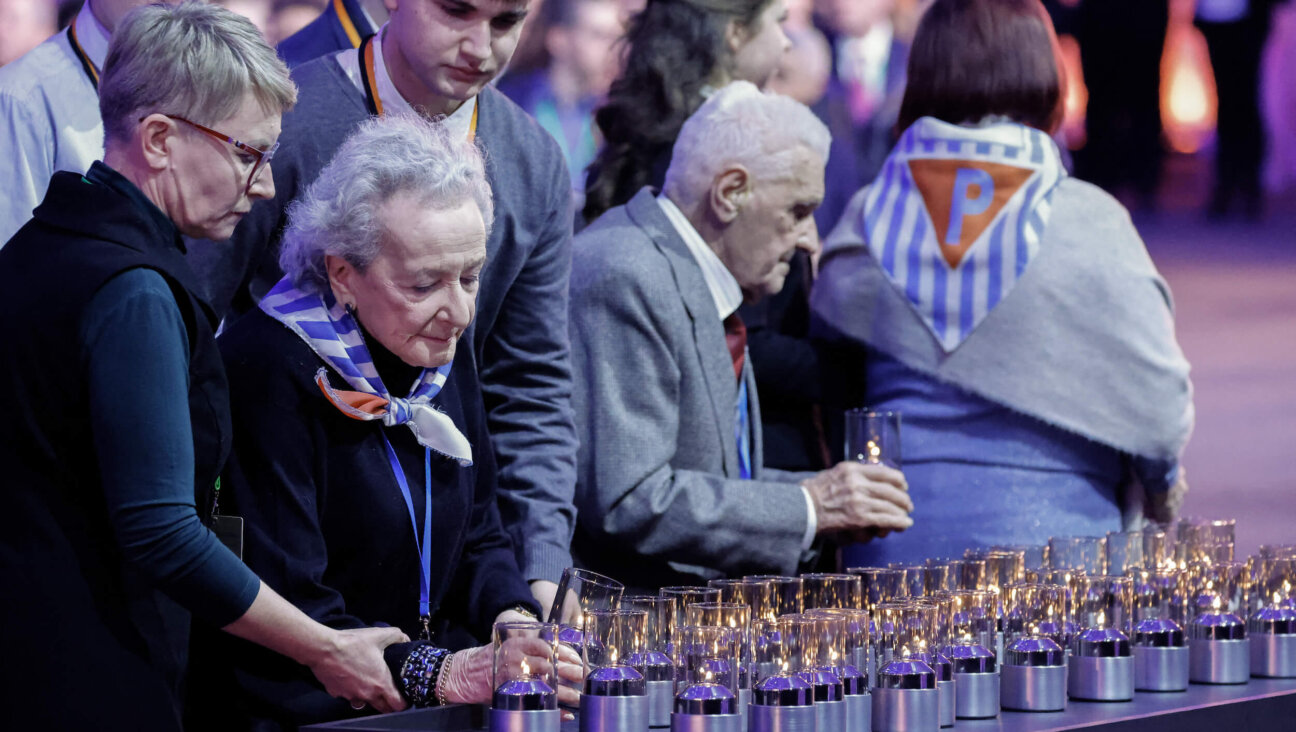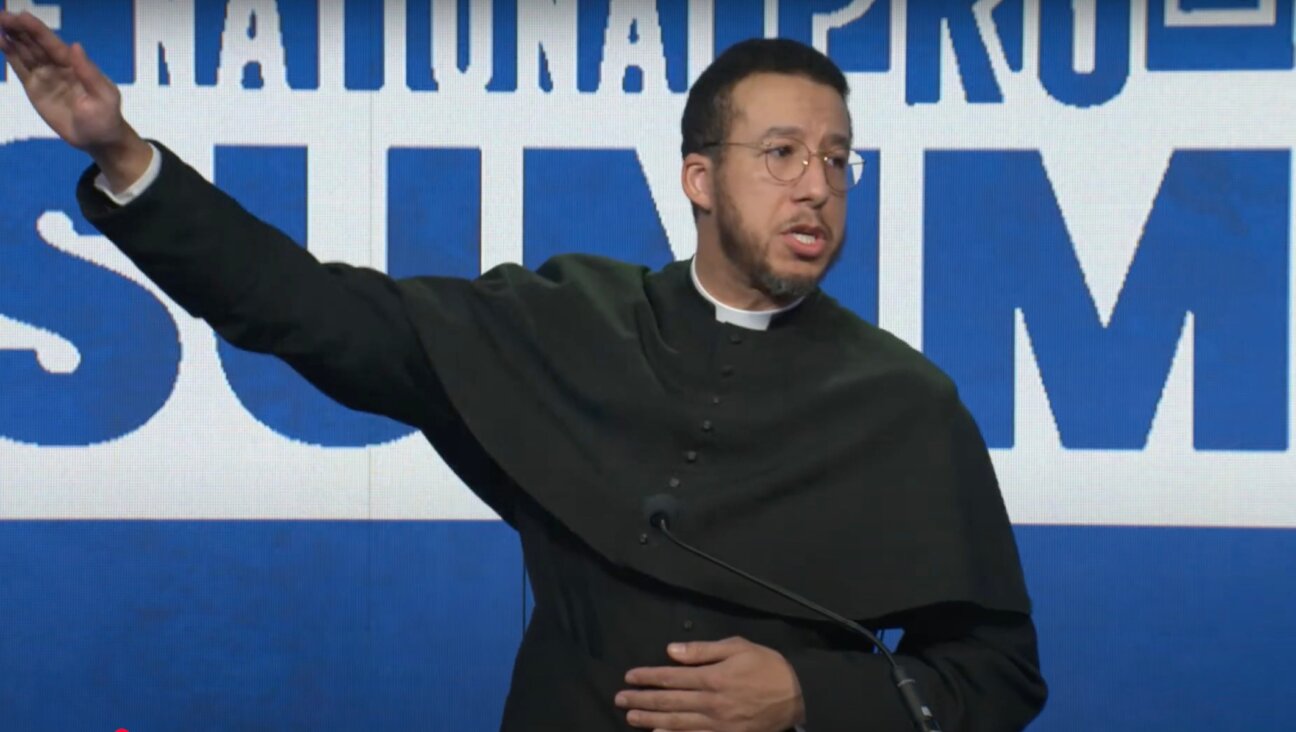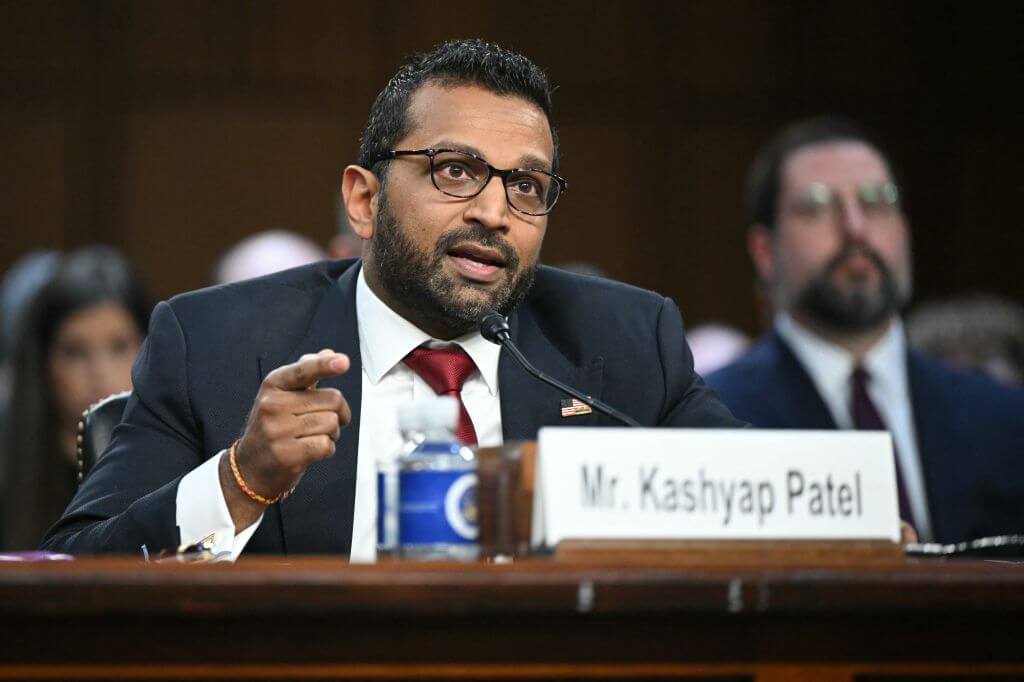What Judaism Can Learn From Burning Man

On Fire: Judaism should emulate DIY spirit of the Burning Man festival. Image by Wikicommons
And now, three items from the world of celebrity — two of which you’ve probably heard about, one which you likely have not.
First, yet another arrest of former cherub Justin Bieber, this time for “dangerous driving” and assault. Let’s not rush to judge the Biebs here — he was trying to elude paparazzi, who had staked out his father’s country retreat in upper Ontario.
Second, JLawGate, the massive hack of iCloud which has resulted in lots of pictures of nude celebrities, including Jennifer Lawrence and even an underage McKayla (“is not impressed”) Maloney, being released to the salivating public. Internet rags are playing the blame game back and forth.
And third: Diplo and Skrillex got booed off the stage at Robot Heart.
I know, one of these things is not like the others. But I’ll explain.
We are, obviously, in a confusing, transitional moment in the American culture of celebrity. In many ways, we’re still in the 1940s, with larger-than-life icons of stage and sport and screen. And yet, thanks to technology, we now smash these idols on a daily basis. Every day, another star falls to earth: Bieber, JLaw, even CeeLo Green, who tweeted an idiotic comment about rape and has been duly excoriated.
The culture of celebrity is many things, among them a profound rejection of responsibility. By following the travails of the Kardashians, I live through them, instead of through my own family and in my own life. Life is mediated through these godlike figures — godlike in the Greek, not Hebraic, sense, since they are filled with human vanities at which I cluck my tongue.
Which brings me to Diplo and Skrillex, two of the largest stars of Electronic Dance Music, or EDM. This year, the pair visited and played together at Burning Man, the twenty-year-old annual community/city/celebration/festival in the Nevada desert. From a celebrity-culture perspective, having these two superstars (you may not have heard of them, but if your kids are into EDM, they definitely have) play at Burning Man may seem like a coup de grace.
But what accounts of Burning Man — including, this year, astonishingly bad reporting in the New York Times, Vanity Fair, and Fortune — have never understood is that Burning Man is not a festival, and absolutely not about celebrity. Not only is no one paid to perform, there are no main stages, no central programs, and no one making any money at all, apart from the salaried staff of the Burning Man organization (now a nonprofit after many years of not being so).
In fact, too much promotion of any kind is frowned upon. Next door to where Diplo and Skrillex played, three other massive EDM superstars, Paul Oakenfold, Above & Beyond, and Markus Schultz, did back-to-back sets — all promoted only via social media, word of mouth, and discreet posters outside the camps where they were playing.
The reason for this is that Burning Man is the exact opposite of celebrity culture. One of its core tenets is Participation: that this is not a festival with performers and spectators, but a community in which every member is asked to participate and contribute. Being entertained is not participation. Co-creating an experience — the DJ is on stage, but you’re dressed like a purple unicorn and you’re giving out neck massages and are glowing like a ferris wheel — is.
Spot the difference? One is a capitalist, market-driven model of producer and consumer, in which you, the consumer, are passive except for your expenditure of money. The other is a non-market “gift economy” in which, sure, people play different roles and some are more prominent than others, but everyone is asked to contribute something.
One is a disempowering spectator sport with a charismatic leader; the other calls on every participant’s creativity to co-create the experience. One is a culture of mediation and celebrity; the other values immediacy and self-expression.
So when Skrillex and Diplo guest-DJ’d a set at Robot Heart, one of the more intense and tribally-oriented dance camps famous for its sunrise sets in the deep desert, away from Burning Man’s city core; and when they did so with a bunch of fanfare; and when they played a Top-40 EDM hit; and when Diplo started whooping at the crowd to “make some noise” as EDM stars of his echelon do — the crowd made some noise alright. A lot of Bronx cheers.
Within the EDM world, these tensions have existed for decades. In the 1990s, the rave scene was ostensibly about PLUR — Peace, Love, Unity, and Respect. But it eventually devolved into massive money-making, fratboy rape culture, and “getting wasted” rather than getting high. (Yes, Virginia, there is a difference.) Burning Man itself is not immune to these trends, though its organizers have labored hard — and forfeited tens of millions of dollars — to keep it true to its original principles.
Is it obvious that I’ve also been talking about the Jewish community all along?
To me, it is. Judaism, from its inception, has likewise struggled with issues of celebrity and leadership. Moses is a great leader, but with an unmarked grave and deep character flaws. The season of the Days of Awe focus on introspection and responsibility, but it is often celebrated in showy clothes at showy synagogues with celebrity rabbis in residence. Never mind my personal character flaws — let’s talk about the rabbi’s sermon, the cantor’s voice, and what Doris wore to shul.
Likewise, American Judaism feels the tensions between empowered, participatory culture and disempowered, lowest-common-denominator spectator Judaism. The former is more vibrant (the Jewish service at Burning Man itself had over 700 people in attendance) but more boutique, demanding more from its participants. The latter is easier, and rich people are willing to pay for it, but it is increasingly irrelevant, and hemorrhaging people and money.
Despite the successes of Facebook, Twitter, Instagram, and the like, much of mainstream American Judaism is still living in the age of CompuServe, with a few self-appointed experts providing uninteresting experiences to the masses. Many institutions don’t trust participants to create their own content — Gosh, they might be critical of Israel! — and so instead they create, and re-create, it themselves. We, too, have our celebrities (thankfully, no nude pictures of them have been released), whether national or local, who offer a frisson of charisma to take us out of our own experiences.
What connects these moments of pseudo-spirituality to the exploits of Justin Bieber and the photos of Jennifer Lawrence? Both ‘real’ celebrities and Jewish ones shift the focus away from the immediacy of our own lives, the beautiful and the ugly, and toward a spectacle. The charismatic leaders, the emotional politics, the experiences served like pu-pu platters — whether it’s in a McMansion-Synagogue or in the supermarket checkout lane, shiny, infantilizing spectacles take our minds off the words on the page or the groceries in the cart, and bathe us in fantasy for a while.
Or, if we prefer, for our entire lives.
Jay Michaelson is a contributing editor to the Forward.
A message from our Publisher & CEO Rachel Fishman Feddersen

I hope you appreciated this article. Before you go, I’d like to ask you to please support the Forward’s award-winning, nonprofit journalism so that we can be prepared for whatever news 2025 brings.
At a time when other newsrooms are closing or cutting back, the Forward has removed its paywall and invested additional resources to report on the ground from Israel and around the U.S. on the impact of the war, rising antisemitism and polarized discourse.
Readers like you make it all possible. Support our work by becoming a Forward Member and connect with our journalism and your community.
— Rachel Fishman Feddersen, Publisher and CEO
























